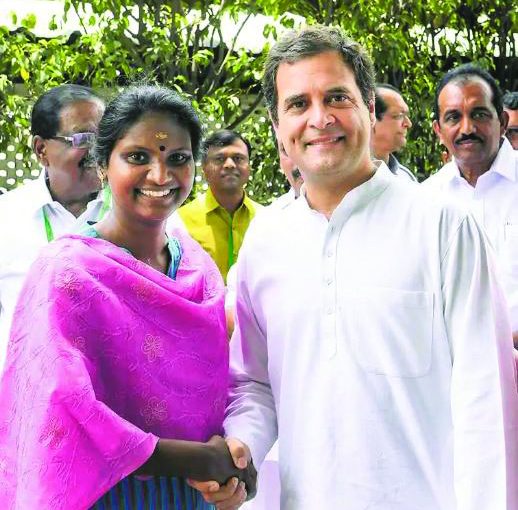For the first time a large number of newly elected MPs are below 40. What is even more satisfying is that a large number of young women have been elected. Even in the Union Cabinet there are two women with one of them Nirmala Seeta Rawan getting the prestigious home portfolio. The youngest of the MPs is just 25.
Ramya Haridas, 32
Congress, Alathur
Barely anyone in Alathur, the constituency that falls in Kerala’s Palakkad district, had heard of Ramya Haridas until her name featured on television news scrolls as the Congress candidate. Now, as the first Dalit woman MP from Kerala, who stormed the Left bastion of Alathur, Ramya’s win is among the most talked about events this election season. She defeated two-time sitting MP P K Biju by 1.58 lakh votes.
A native of Kozhikode, Ramya, 32, is the daughter of farm worker Haridas and Mahila Congress leader Radha. “Even during my school days, I was active in the Jawahar Balajanavedi (a Congress platform for children) in my village. Later, I joined Kerala Students Union and became a leader of the Youth Congress in Kozhikode. In 2007, when the Ekta Parishad (a Gandhian organisation) launched a campaign for forest rights for tribals, I joined it,’’ says Ramya.
Ramya was first noticed in 2011 during a talent hunt by Rahul Gandhi, then Congress general secretary. In the 2015 civic body elections, Ramya contested and won from a division reserved for women in Kunnamangalam block panchayat.
Her biggest regret, she says, is that she could not study much beyond Class 10. “Our family’s financial troubles dissuaded me, but I did my pre-primary teachers’ training programme and a short course in fashion designing. I conducted cultural programmes and led motivational classes in tribal and Dalit colonies. With the help of Congress leaders, I also worked as a facilitator for tribal projects in civic bodies. The little money I got through these activities sustained our family,’’ says Ramya.
Ramya says she has not made up her mind on what her maiden question in Parliament would be. But, she says, “what youth need most is skill training. I will strive to bring skill development centres to my constituency.’’
—Shaju Philip
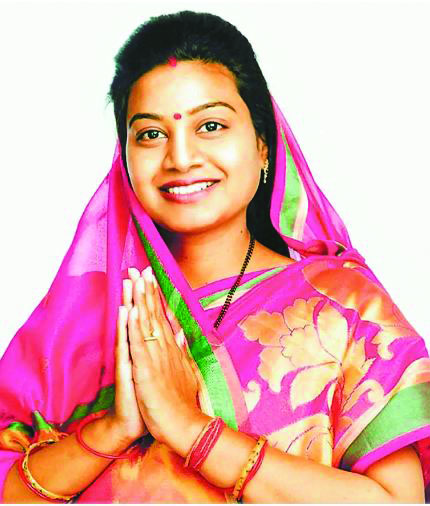
32 BJP, Shahdol
“Just like a girl changes her home after marriage”, Himadri Singh says, she switched from the Congress to the BJP, but stayed loyal to Shahdol, the constituency once represented by both her parents and which she has now won by a little more than four lakh votes. Her father Dalbir Singh and later her mother Rajesh Nandini were Congress MPs from Shahdol. In 2016, after the death of sitting BJP MP Dalpat Singh Paraste, Himadri contested the bypolls, but lost. Himadri joined the BJP only in March this year, and, a couple of days later, she was announced as its candidate. Her rival Pramila Singh had done the reverse switch: from the BJP to the Congress. Himadri says the reason she switched was marriage. In 2017, the arts graduate had married BJP leader Narendra Maravi, nearly a year after her defeat in the parliamentary bypolls. Interestingly, her husband had lost to her mother in 2009 general election. In Parliament, Himadri says she plans to raise the lack of rail connectivity in the region. Asked if the Congress government in the state, which enjoys a thin majority, would survive, Himadri says she is “too young to talk about it and would rather leave this to seniors”. — Milind Ghatwai
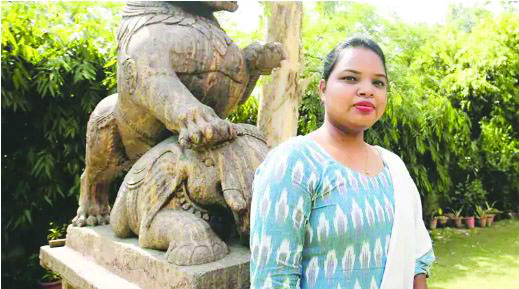
BJD, Keonjhar
India’s youngest parliamentarian can’t wait to get to Delhi and see her new workplace. “I have only seen photos of Parliament House. I’m eager to soak in the air,” says Chandrani Murmu, days before she sets off for Delhi. Murmu won from Keonjhar in Odisha as a BJD candidate, defeating two-time former MP and BJP candidate Ananta Nayak. The journey from being a 2017 BTech graduate to becoming the youngest parliamentarian has been full of unexpected turns. It was her maternal uncle Harmohan Soren, a social worker, who told her that the party was looking for a young and educated woman to represent Keonjhar, an ST reserved constituency. “I was initially hesitant, but my parents were very excited,” says Murmu, the youngest of three sisters. Her family, however, is not new to politics — her maternal grandfather, the late Harihar Soren, was a Congress MP in 1980 and 1984. Murmu hopes to visit her constituency regularly to know its problems. On her list of priority projects are a railway line to connect the mineral-rich region to the port area of Dhamra, and a steel plant in Keonjhar. “These will create jobs,” she says. Her new role comes with minor irritants though, says Murmu, among them people requesting her for selfies and relatives pestering her to marry. “Right now, my priority is work,” says Murmu. —Alaka Sahani

Trinamool Congress,
Jadavpur Actor and now MP, Mimi Chakraborty was with Nusrat Jahan when they walked into Parliament on May 27 and posed for photographs, displaying their identity cards. The trolls came alive soon after, many of them going after Chakraborty for turning up in Parliament in her white shirt and jeans. Like Nusrat Jahan, Chakraborty has been at the receiving end of trolls since the Trinamool Congress announced her candidature from Jadavpur, where Chakraborty defeated her BJP rival Anupam Hazra by 2.94 lakh votes. Dismissing the trolls, Chakraborty says, “We talk about equality, women’s empowerment… yet we are now being trolled for wearing jeans. I haven’t heard of male MPs being criticised for their clothes but when a woman MP wears jeans, that bothers an entire nation. We will talk about things youth need, including jobs.” Chakraborty, who has worked in both television and films, is a graduate in English Honours from Ashutosh College in Kolkata. Most of her family members, she says, are “active Trinamool members”. “My uncles, grandfather and great grandfather have all been active in politics at some point or the other. So probably I am only taking that family legacy forward,” she says. On the issues she plans to raise in Parliament, Chakraborty says, “There are many issues that bother me, three of which are on my priority list, but I will simply not talk about them now. When I raise it in Parliament, you will know.” — Sweety Kumari
Nusrat Jahan Ruhi,
29 Trinamool Congress,
Basirhat It was on May 27, when Nusrat Jahan walked into Parliament for the first time, that the enormity of her election win sunk in. “When I walked in, it felt like I was entering a temple — a temple of democracy. I realise how huge my responsibility is now,” she says. Jahan, one of several film stars to be fielded by the Trinamool Congress, won from Basirhat, defeating BJP’s Sayantan Basu by a margin of 3.5 lakh votes. In 2017, Baduria in Basirhat had witnessed violent communal clashes after a teenager allegedly posted a derogatory meme on the Prophet on Facebook, following which mobs set vehicles on fire and vandalised shops despite appeals for peace by community leaders and clerics. Jahan, who is often seen taking part in Durga puja celebrations, had been projected as the Trinamool’s answer to the BJP’s minority appeasement charge against the party. Born to a Bengali family in Kolkata, Jahan started her modeling career after winning a beauty contest in 2010, following which she soon made her movie debut. Nine years later, as she talks of her newest role, Jahan says, “My films help me connect with my audience but now that I am an MP, I am connected to every household in Basirhat.” Dismissing the trolls that she has faced ever since her candidature was announced, Jahan says, “Trolls talk about me because I am famous.” For now, she says she has her task cut out. “Like any other woman who handles home and work, I will have to work for my people besides completing my film assignments. I may have a few sleepless nights but I am not afraid to multitask,” she says. — Sweety Kumari
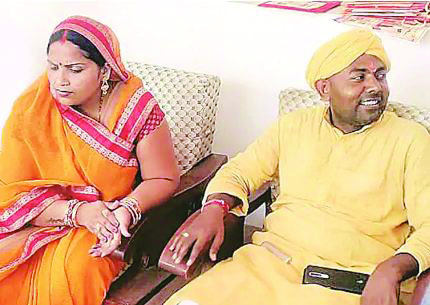
Janata Dal (United), Siwan
Sometime in 2011, Kavita Singh saw an online advertisement about Ajay Singh (in pic with Kavita), then a local politician with criminal cases, seeking a bride. Ajay’s mother, Jagmato Devi, the JD(U)’s Daraunda MLA, had died earlier that year and Ajay wanted to contest from the seat. But the party was uncomfortable because of his controversial image. Bihar Chief Minister Nitish Kumar reportedly advised him to get married and field his wife. Kavita Singh, then a BA student (now a postgraduate in home science), was one of the 16 prospective brides. According to Ajay, he picked Kavita as she was “bold”. She went on to marry Ajay and win the 2011 Daraunda bypoll, a seat she retained in the 2015 Assembly elections. In the 2019 Lok Sabha elections, when the JD(U) was allotted Siwan, a seat the BJP had won in 2014, Ajay again sought the ticket. But again Kavita emerged as the JD(U)’s choice against RJD nominee Heena Shahab, wife of four-time former Siwan MP Mohammed Shahabuddin. Kavita portrayed herself as a housewife seeking to keep the legacy of Jagmato alive. While Kavita, in her campaign, also spoke about PM Narendra Modi’s leadership and Nitish’s development plank, her husband seemed to play the Hindu card, wearing religious threads around his wrist. In Parliament, Kavita promises to raise questions about the education system and employment situation in her constituency. —Santosh Singh
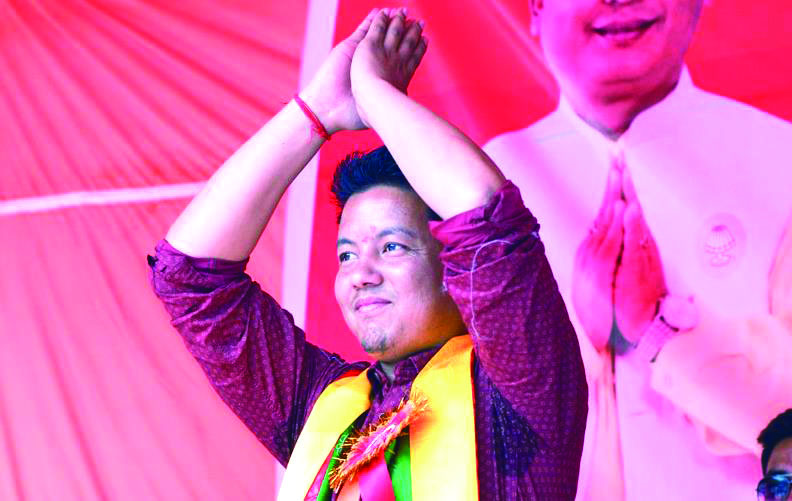
Sikkim Krantikari Morcha, Sikkim
Sikkim’s new MP, Indra Hang Subba, is a PhD student at the Physics Department of the Central University of Sikkim. A political neophyte, Subba joined politics only in 2018. This was his first election. The young MP had never taken part in student politics, but when Baichung Bhutia announced that he would launch Hamro Sikkim political party, Subba decided to take the plunge. “But soon after joining Hamro Sikkim Party, I found that the election of the president of the party was not quite democratic. So I decided to join Sikkim Krantikari Morcha,”he said. Subba says his aim is to reduce the unemployment rate in the state to 5per cent. “In Sikkim there are high suicide rates because of unemployment. Our party’s goal is to bring it down to five per cent. My priority is promotion of training and vocational courses. There are over 50 pharmaceutical companies based in Sikkim, but the youth don’t have the technical know-how. So these firms bring their work force from other states. We will introduce both short and long-term training modules which will help in employing the youth within the state,” he said. —Esha Roy
